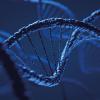A new study challenges prevailing understandings of genes as immutable features of biology that are fixed at conception.

Previous research has shown that socioeconomic status is a powerful determinant of human health and disease, and social inequality is a ubiquitous stressor for human populations globally.
In this study, researchers found evidence that poverty can become embedded across wide swaths of the genome.
They discovered lower socioeconomic status is associated with levels of DNA methylation (DNAm) – a key epigenetic mark that has the potential to shape gene expression – at more than 2,500 sites, across more than 1,500 genes.
They state that this means poverty leaves a mark on nearly 10% of the genes in the genome. Lead author Thomas McDade said experiences over the course of development can shape the genome’s function.
Image credit | Shutterstock




